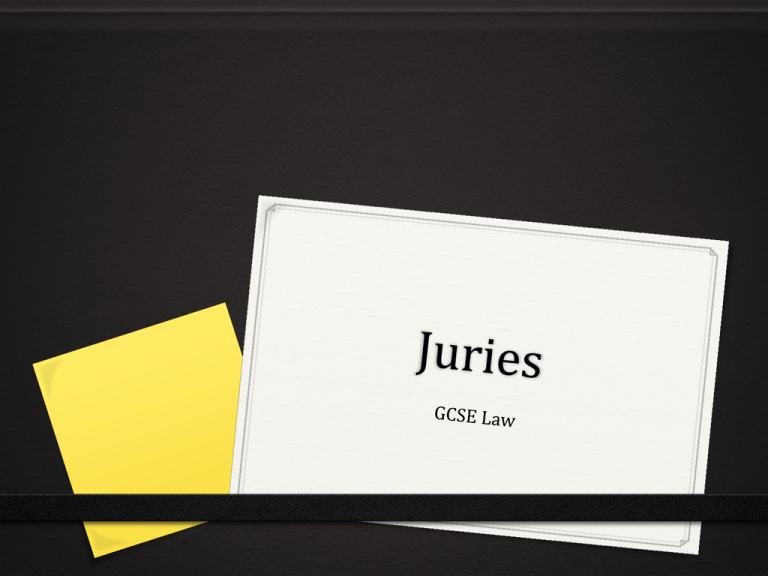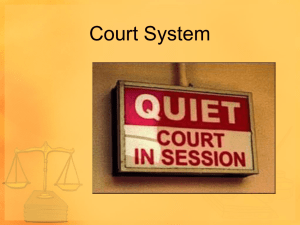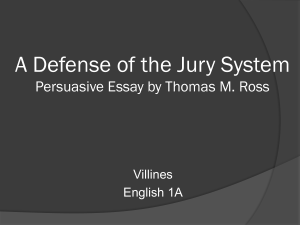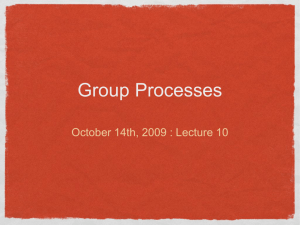Juries - Weebly
advertisement

Homework 0 Revise Magistrates. We will have a few more lessons on juries and then you will answer a timed essay on the role of lay people within the English Legal System. Learning Objective 0 Describe and evaluate the qualification, selection and role of juries in the English Legal System Card Sort 0 Using the cards on your table. 0 Who do you think should sit on a jury? 0 Sort the cards out into two piles, one for yes and one for no. Watch the video 0 Serving as a juror: Directgov – Crime, justice and the law Jury Qualifications 0 Juries Act 1974 (amended by the Criminal Justice Act 2003) 0 Jurors must be aged between 18 and 70 0 They must have been a resident in the UK for a minimum of 5 years since the age of 13 0 They must be entered on the electoral register Jury Disqualification 0 If you are currently on bail pending a criminal trial 0 Have ever been given a custodial sentence of over 5 years 0 Have been sentenced to custody or a community order within the last 10 years 0 Are mentally ill Who is eligible for jury service? 0 The mother of a young baby 0 A person who is deaf 0 A person who went to prison for 6 months, 10 years ago 0 A homeless person Task 0 Activity 1 – page 68 0 Questions 1 - 10 Role Play 0 You have received a jury summons. You arrive at court on the day of the trial ready for jury selection. 0 Invent a persona for yourself with a past (good or bad). 0 We will then decide whether you should be allowed to sit on the jury. Task 0 In pairs brainstorm the following: 0 Reasons why the jury system is a good way of deciding serious criminal cases 0 Reasons why it may be easier to have a judge make the decisions Exam Question 0 Discuss the advantages and disadvantages of using juries in criminal cases. 0 Remember – Statement then justification 0 (ALWAYS SAY WHY IT IS AN ADVANTAGE OR DISADVANTAGE) Plenary 0Stand up/sit down game TOPIC: 0MAGISTRATES & JURIES











